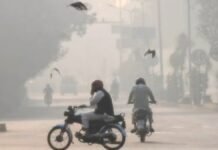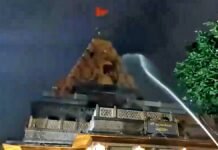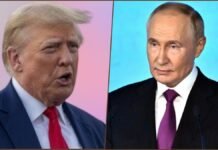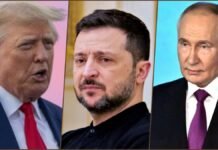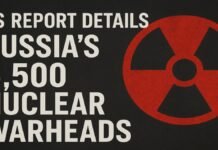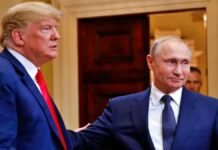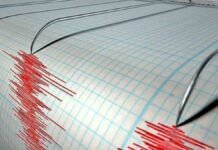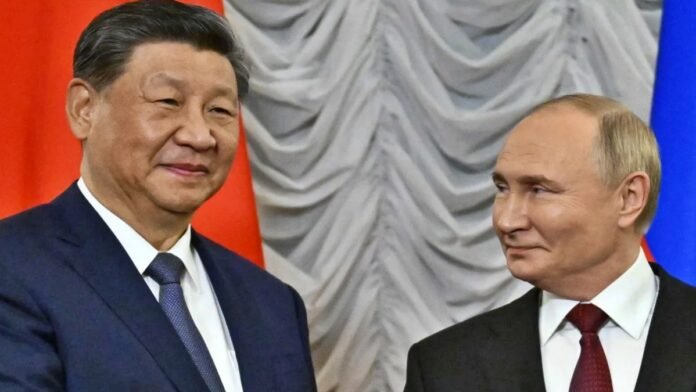
Key Points
- Russian President Vladimir Putin and Chinese President Xi Jinping jointly condemned Israel’s recent military strikes on Iran during a phone conversation.
- Both leaders called Israel’s actions a violation of the UN Charter and international law, urging immediate de-escalation and a return to diplomacy.
- Putin and Xi agreed that concerns over Iran’s nuclear program cannot be resolved militarily and stressed the need for diplomatic engagement.
- Xi expressed support for Russia’s mediation efforts to help ease regional tensions.
- Israeli Defense Minister Israel Katz accused Iran’s Supreme Leader Ayatollah Khamenei of war crimes after a missile strike hit a hospital in southern Israel, injuring at least 47.
- Israel vowed to intensify strikes on Iranian government and strategic targets, including sites in Tehran.
- Iran claimed its missile targeted a military base near the hospital, not the hospital itself.
New Delhi: In a significant display of unity, Russian President Vladimir Putin and Chinese President Xi Jinping held a phone call to address the rapidly escalating conflict between Israel and Iran. According to the Kremlin, both leaders issued a strong condemnation of Israel’s recent airstrikes on Iranian territory, describing them as a clear violation of the United Nations Charter and international law.
Kremlin foreign policy adviser Yuri Ushakov stated, “There was strong condemnation of Israeli actions which violated the UN Charter and other norms of international law.” The two leaders agreed that the current military approach risks plunging the Middle East into deeper chaos and called for an immediate halt to hostilities.
Nuclear Concerns: No Military Solution, Say Putin and Xi
Both Putin and Xi emphasized that longstanding concerns about Iran’s nuclear program, often cited by Israel and its Western allies as justification for military action, cannot be resolved through force. “Diplomatic engagement is the only way to prevent further escalation and achieve lasting stability in the region,” the Kremlin summary noted.
President Xi Jinping also expressed support for Russia’s potential role as a mediator, saying Moscow could help facilitate dialogue and a peaceful resolution. This marks a continued effort by both Russia and China to position themselves as key diplomatic players in the Middle East crisis.
Israeli Response: Vows of Retaliation and Escalation
The diplomatic appeals from Moscow and Beijing came as Israeli Defense Minister Israel Katz issued a fiery response to a missile strike that hit Soroka Medical Center in southern Israel, injuring at least 47 people. Katz directly blamed Iran’s Supreme Leader Ayatollah Ali Khamenei, accusing him of orchestrating war crimes.
“The cowardly Iranian dictator sits in a fortified bunker and fires missiles at hospitals and residential buildings. These are war crimes of the most serious kind. Khamenei will be held accountable,” Katz declared.
Katz further announced that he and Prime Minister Benjamin Netanyahu have directed the Israel Defense Forces (IDF) to escalate their operations, including targeting Iranian government and strategic sites in Tehran. The stated goal is to neutralize threats to Israeli citizens and weaken Khamenei’s regime.
Iran’s Defense: Target Was Military, Not Hospital
In response to global outrage over the hospital strike, Iran’s state-run news agency IRNA reported that the intended target was not Soroka Medical Center but an Israeli Army Command and Intelligence Base located in the adjacent Gav-Yam Technology Park. Iranian officials insisted that civilian casualties were unintended and that their strikes were aimed at military infrastructure.
The Bigger Picture: Rising Global Tensions
The exchange of condemnations and threats highlights the growing risk of a broader regional conflict. With Russia and China now openly criticizing Israel’s actions and offering to mediate, the diplomatic landscape is shifting. Meanwhile, Israel’s leadership is doubling down on military action, raising fears of further escalation.







